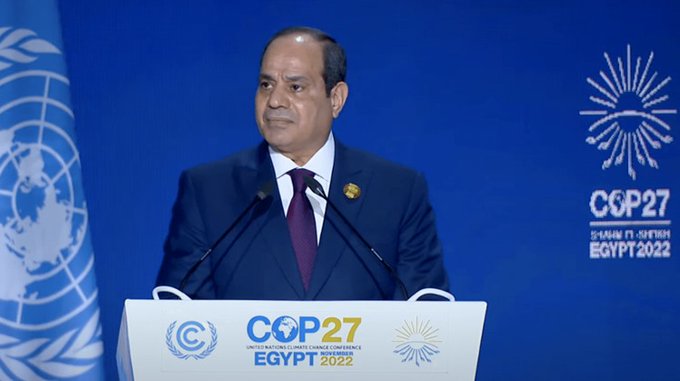|
Getting your Trinity Audio player ready...
|
Women remain underrepresented in climate governance and debates, and the COP27 Gender Thematic Day brought together women leading climate at national, regional, and the global community level, to discuss matters of gender within the climate agenda.
Women continue to bear a disproportionate burden of the adverse impacts created by climate change. It was highlighted that women must be fully integrated into the processes of formulating and implementing policies to ensure fair gender inclusion. As a result, The Gender Thematic Day launched on Monday at COP27 aims to bring this issue to the forefront and provide a platform to discuss existing challenges in this space. The sessions held also aim to share success stories from around the world with a view of promoting gender-sensitive and highly responsive policies, strategies, and actions.
During the opening session for Gender Day, the African Women’s Climate Adaptive Priorities (AWCAP) initiative was announced and launched by Dr. Morsi. This initiative stems from a key insight that in the wake of disasters, women and children are ~80% of those needing assistance, while poor women in rural areas are 14 times more likely to die during a natural disaster.
President of the National Council for Women in Egypt Dr. Maya Morsi emphasized “Women are not just helpless victims of climate change, they are powerful agents of change, and their leadership is critical. A bottom-up approach is significant to understand women in communities, their environmental concerns, realities, and experiences.”
- Women and Climate Change Finance at COP27 looked at the role of women in society and business and how addressing inequalities could lead to different outcomes when it comes to climate finance.
- Voices of Women Leaders in Climate Debates, Policies, Implementation and Beyond focused on how women are disproportionately affected by the climate crisis and if given the opportunity they can lead the world out of it.
- African Women Climate Change Realities: Adaptation, Mitigation and Response focused on the crucial role women play in climate change mitigation and adaptation and the need for African governments, civil society, and policymakers, to invest in capacity and skill building as well as education of women and girls to enhance awareness.
- COVID-19 and climate change: women at the center of planning and response highlighted that women were among the most affected segments of the COVID-19 outbreak.
- At the Women Livelihood Within Just Economic Transition, explored the need for gender to be considered as part of ensuring a just and managed transition to a new and more sustainable economic model for women. Training and skill building are central to success.
- Voices of Women Leaders in Climate Debates, Policies, Implementation, and Beyond looked at how Women in leadership positions remain a minority but if part of the solution could help to address the hardships brought on by the climate crisis and help deliver viable and tangible solutions.
Inspired by the theme of the day, an 18-year-old spoke at the Closing Ceremony and highlighted the importance of knowledge as a potent tool to aid implementation. Dr. Maya Mosri, President of the National Council for Women in Egypt, introduced Nevine Ghazi to the audience as a young advocate who reached out during the day wanting to contribute to AWCAP by providing accessible and effective climate education to children, particularly in the global South. The ceremony was also attended by H.E. Minister of Environment in Egypt, Dr. Yasmine Fouad; Dr. Usha Rao-Monari UN Under-Secretary-General and UNDP Associate Administrator; and UN Under-Secretary-General and UN Women Executive Director Sima Bahous.






